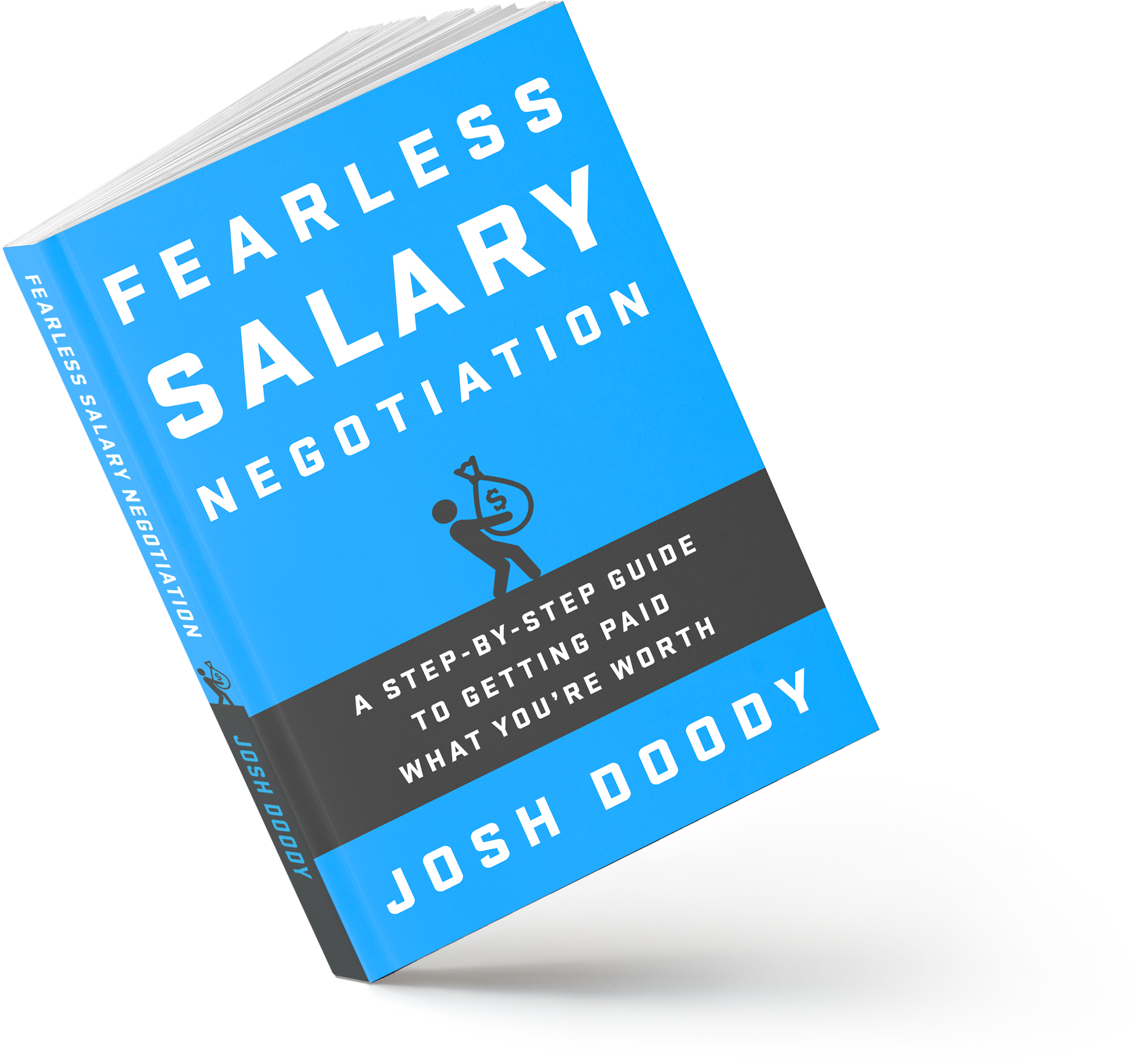
What is your target salary?
Defining your goal for your next raise
Your first step to asking for a raise is to set your target salary. What salary should you be paid for the value you bring to the company?

Your first step to asking for a raise is to set your target salary. What salary should you be paid for the value you bring to the company?
How do you define your goal when you’re pursuing a raise? You estimate the market value for your skillset and experience and adjust that number to account for how valuable your skillset and experience are at your specific company.
Estimating your market value is a key component of salary negotiations. I strongly recommend you estimate your market value before you continue.
Once you’ve estimated your market value, you need to adjust that estimate to account for your value at your specific company. This is an important step because you’re requesting a raise from your company, not from your industry, and the value of your skillset and experience to your company may not mirror the entire industry.
This is a very subjective adjustment. Below, I’ve listed some things you can consider when making this adjustment. For each one, think about whether it indicates that your skillset and experience are more or less valuable at your company than they are to the industry in general.
After considering all of these things and coming up with your own criteria, make a subjective judgment about whether you should adjust your market value up or down to account for your company’s current situation. If you decide you should adjust your market value, estimate how much of an adjustment you should make. Chances are the value of your skillset and experience to your company is within about 10% of your market value either way, but it could be even more or less depending on your specific company and industry.
Let’s expand a bit on the example from How to estimate your market value. In that example, Alison is a Project Manager making $65,000 a year in the Construction industry and she estimated her market value at $80,000, give or take. She also found that other project managers in her industry and region were making around $75,000, and she knows that a project manager who left her company earlier in the year was making $73,000.
Her market value is a good starting point for estimating the amount of the raise that she should request, but she also needs to calibrate her request to account for what she knows about the current situation at her company.
Alison has proven to be a good project manager for a few years at her company, so she’s a known quantity who produces known results. Even if her company did find a good replacement for her, it would probably cost them about $80,000 and they would be hiring an unknown quantity with unproven results.
She has noticed that several other junior project managers have been hired in the past several months, and she’s actually training one of them right now. This indicates that the company has a pretty high demand for project managers, and she’s valuable because she’s helping train new people. She has also noticed the company has been getting a lot of new projects recently, so it seems like sales have picked up and the company is doing well. This is supported by the fact that last year’s bonuses were larger than they had been in previous years.
So it seems like the company is doing pretty well, and Alison is particularly valuable because new projects are coming in and she’s helping train and educate the new project managers the company has hired.
Alison can reasonably request a raise to about $80,000 because that is her approximate market value and, although project managers in her industry and region are paid around $75,000, she’s particularly valuable to her company. Her company also seems to be doing pretty well recently, so it’s likely the growing business will value her skillset and experience more than other local companies might. This seems like a pretty big request, but the research she has done supports it.
Now that you’ve estimated your market value and have adjusted that estimate to account for your value at your specific company, you have your goal. Now it’s time to move forward and make your best possible case to justify your goal.
Real talk: You may already be ready to ask for a raise. Your best ammo is the market mid-point data, augmented with a general sense of how you stack up against an “average” employee doing your job. So you could stop reading right now, call your manager up and say, “The mid-point for my job in our industry is $80,000 and I’m only making $65,000. Can we adjust my salary to align with the market?” Sometimes, that’s all it takes. Some companies’ HR departments are very attuned to the market, and expect they’ll need to adjust salaries to align with the market over time. Your request could be just the push they need to look at your particular situation and make an adjustment.
The problem is you can’t really know whether this sort of request will be sufficient until after you’ve made it. And since you don’t know what you don’t know, the best strategy is to present the most compelling case possible for your raise up front.
How do you do that? Start building your case by documenting your accomplishments and accolades.

I'm Josh Doody, a professional salary negotiation coach who helps High Earners negotiate their job offers. On average, High Earners improve their first-year compensation by $47,273 with my help.
Apply for a free 15-minute intro call to learn how I can help.